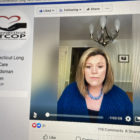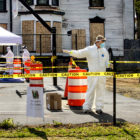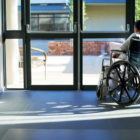Ombudsman’s Facebook Chats Are Lifeline For Families Worried About Loved Ones In Nursing Homes
|
Families with loved ones in nursing homes–unable to visit while getting frustratingly sparse information about them–have found a champion in Mairead Painter. Painter, the state’s long term care ombudsman, who works for the state Department of Aging and Disability Services, launched live chat sessions on Facebook that quickly evolved into a real-time information pipeline for families. “I was trying to think about how we can reach people. Normally, residents and family members are sometimes the last people to get information,” said Painter, whose office is independent of the state Department of Public Health. “I wasn’t sure anybody would join [the chats].









